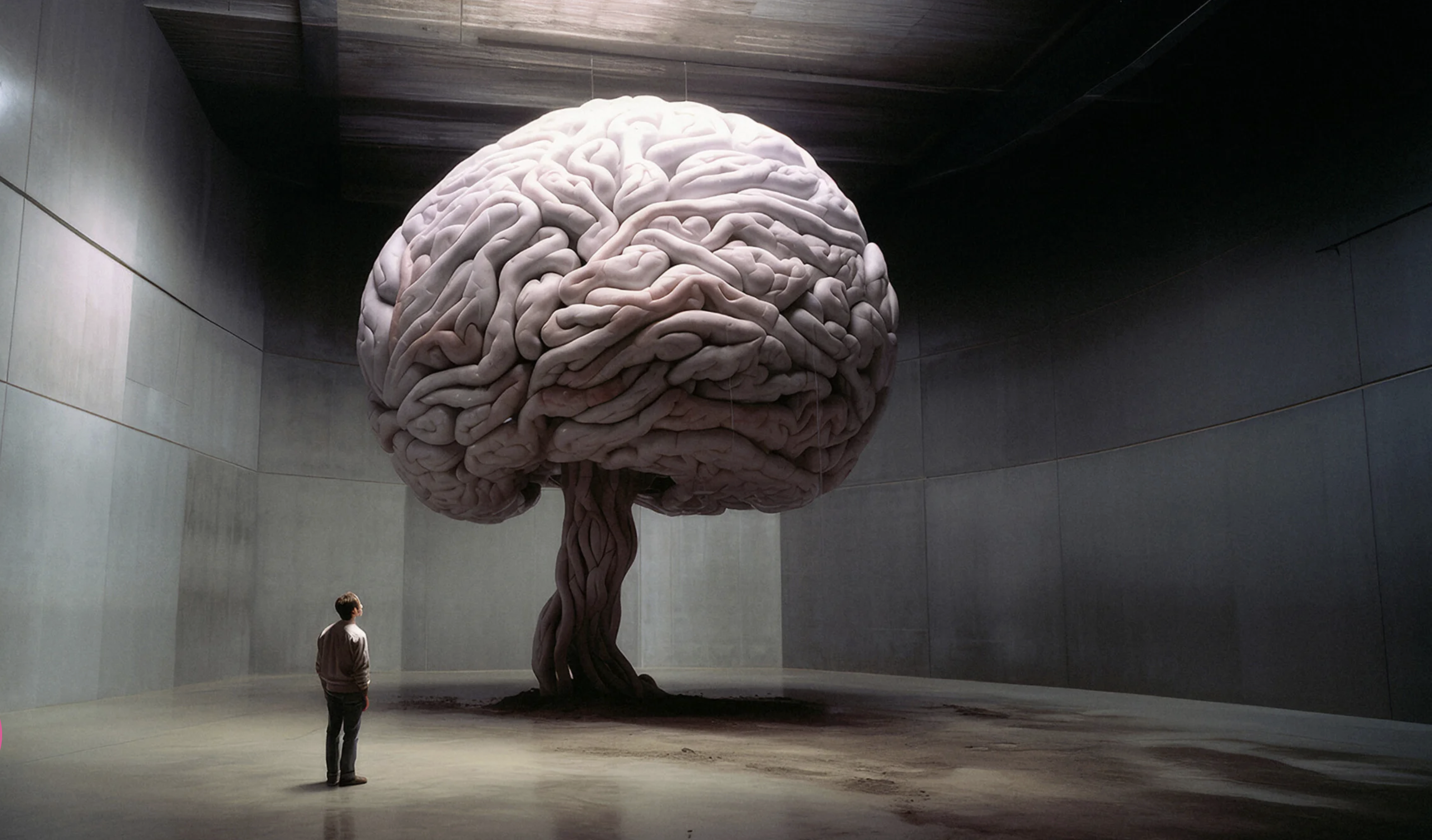Image above: “What’s Work without People”, 2024 by Oliver Rust, ai-creator.ch
What’s work without people?
Are we facing a fully automated world of work?
Is AI really the key?
What other scenarios are possible?
And which ones are desirable for people and the planet?
On 22 October 2024, we discussed these and many other questions with neuroscientist Pascal Kaufmann, Peter Roth, CEO of Mint-Architecture, leadership expert Frank Scheelen and Vitra’s Head of Research and Trendscouting Raphael Gielgen at the VicCafé in Zurich.

Well my scenario is the following:
While AI takes care of productivity, humans regenerate the planet: not only the environment and climate, but also the world of work has changed fundamentally. AI systems have gradually taken over repetitive and time-consuming tasks in almost every industry. Even in management and the creative industries, AI is taking over much of the work.
-Work without people!
The average working week has been reduced to 24 hours, while productivity has been adjusted to a level where available resources, demand, economic benefits and the recycling of used raw materials are continuously monitored and adjusted by AI.
With the time gained, humans are committed to regenerating the ecosystem destroyed by industrialisation and globalisation. AI-driven analytics systems will identify the most pressing environmental challenges and develop optimal solutions.
Millions of people take part in AI-coordinated reforestation projects, for example, or in monitoring the extinction of endangered animal and plant species, or in restoring the quality of soil and water. In cities, green oases are being created with vertical gardens that produce local food and improve the microclimate.
AI-driven cleaning systems are ridding the oceans of plastic waste, while innovative AI-driven recycling technologies are turning waste into valuable resources, making humanity independent of fossil fuels.
By combining human dedication and AI efficiency, a new path can be taken in the relationship between humanity, technology and nature, one that preserves the planet on which human civilisation depends.

